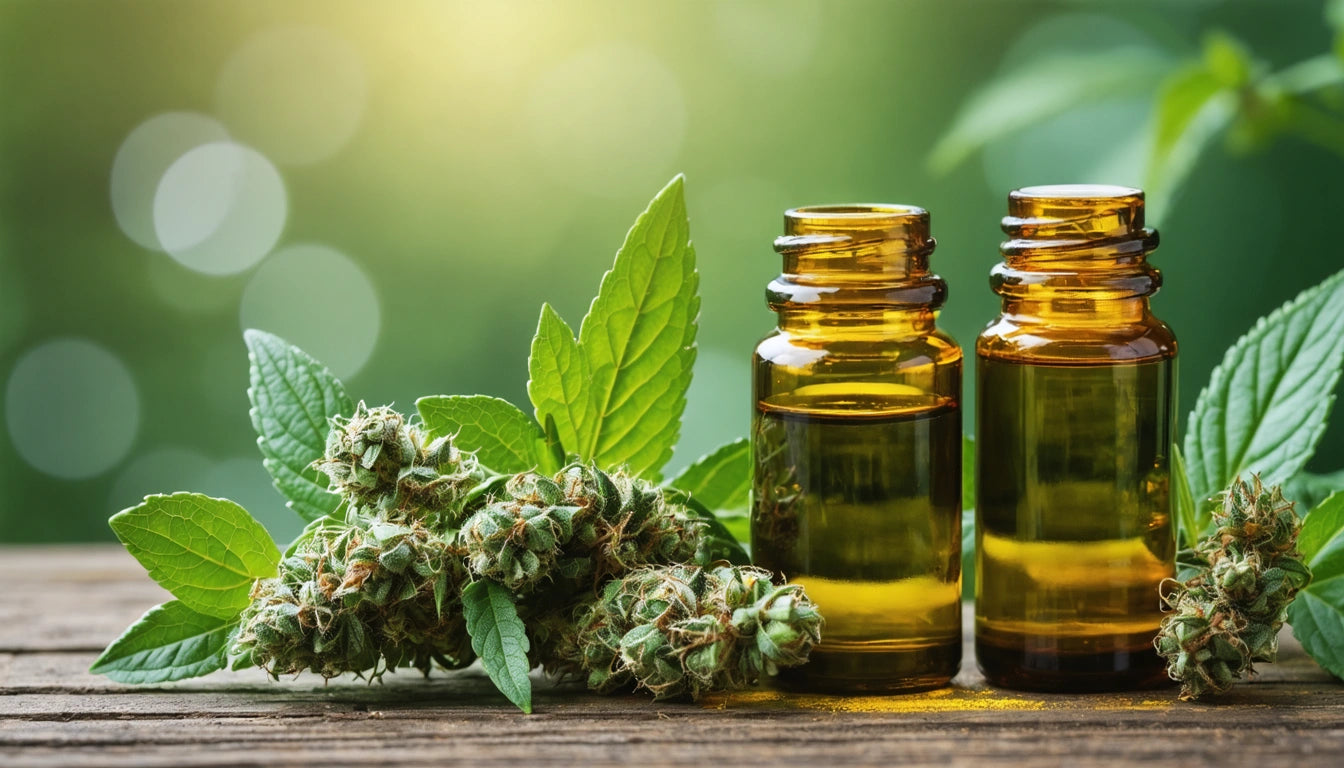Table of Contents
Exploring the Impact of Cannabis on ADHD: Potential Benefits and Risks
Attention Deficit Hyperactivity Disorder (ADHD) affects millions of individuals worldwide, characterized by persistent patterns of inattention, hyperactivity, and impulsivity that interfere with functioning and development. As traditional medications come with various side effects, many people wonder: does cannabis help with ADHD? This question has gained significant attention as cannabis becomes more widely accepted for various medical applications.
Understanding ADHD and Current Treatment Approaches
ADHD is a neurodevelopmental disorder that affects approximately 4-5% of adults and 5-9% of children globally. The condition stems from differences in brain structure and neurotransmitter function, particularly involving dopamine and norepinephrine systems that regulate attention, impulse control, and executive function.
Conventional treatments typically include:
- Stimulant medications (Adderall, Ritalin, Concerta)
- Non-stimulant medications (Strattera, Intuniv)
- Behavioral therapy and cognitive behavioral therapy
- Lifestyle modifications and coping strategies
While effective for many, these treatments can cause side effects including appetite suppression, sleep disturbances, mood changes, and in some cases, dependency concerns. These limitations have led many individuals to explore alternative approaches, including cannabis.
The Cannabis-ADHD Connection: How It Works
To understand if weed helps with ADHD, we need to examine how cannabis interacts with the brain's systems involved in attention and impulse control. Cannabis contains over 100 cannabinoids, with THC (tetrahydrocannabinol) and CBD (cannabidiol) being the most studied.
The potential mechanisms include:
Dopamine Regulation
THC can temporarily increase dopamine release in the brain. Since ADHD involves dopamine dysregulation, this effect might help address certain symptoms. Research on cannabis and dopamine levels suggests this relationship is complex and dose-dependent.
Endocannabinoid System Modulation
The endocannabinoid system plays a role in regulating attention, impulse control, and emotional regulation. Cannabinoids may help balance this system in individuals with ADHD.
Potential Benefits of Cannabis for ADHD Symptoms
Some individuals report that cannabis helps manage specific ADHD symptoms:
Hyperactivity and Impulsivity Reduction
Some users report that certain cannabis strains, particularly those with balanced THC:CBD ratios or indica-dominant profiles, help reduce feelings of restlessness and impulsivity. Specific cannabis strains for ADHD may offer targeted symptom relief for some individuals.
Improved Focus
In contrast to what many might expect, some individuals with ADHD report improved focus with low doses of cannabis, particularly with sativa strains. This paradoxical effect might relate to the biphasic nature of cannabis, where low and high doses can produce opposite effects.
Sleep Improvement
Many individuals with ADHD struggle with sleep disorders. Cannabis, particularly indica strains or products with CBN (cannabinol), may help improve sleep quality and reduce insomnia. Proper sleep often leads to better symptom management during waking hours.
Risks and Considerations When Using Cannabis for ADHD
The question "does weed make ADHD worse?" is valid and important to address. Cannabis use for ADHD comes with several potential risks:
- Memory and cognitive impairment, particularly with high-THC products
- Potential for amotivational syndrome with heavy, long-term use
- Risk of dependency, especially when self-medicating
- Legal considerations depending on jurisdiction
- Inconsistent product quality without proper regulation
These concerns are particularly relevant for adolescents and young adults, as their brains are still developing. Some studies suggest early, heavy cannabis use could potentially exacerbate certain ADHD symptoms long-term or interfere with brain development.
For those considering cannabis for ADHD, child-resistant packaging solutions are essential to ensure medication safety in households with children, meeting both regulatory requirements and providing peace of mind.
Current Research and Evidence
Scientific research specifically examining whether cannabis helps with ADHD remains limited, though growing:
Promising Studies
A small 2020 study published in the Journal of Attention Disorders found that adults with ADHD who used cannabis reported small to moderate improvements in symptoms. Similarly, a 2016 qualitative analysis of online forums found many users self-reporting benefits for ADHD symptoms.
Contradictory Findings
Other studies suggest cannabis use might worsen executive function issues in some individuals with ADHD or create dependency issues. The question "does weed cause ADHD" has been studied, with research indicating cannabis doesn't cause ADHD but may complicate its management in some cases.
The relationship between cannabis and neurological conditions shares similarities with cannabis effects on autism and bipolar disorder, where individual responses vary significantly.
Practical Considerations for ADHD Symptom Management
For those considering whether cannabis can help with ADHD, several practical approaches may increase potential benefits while minimizing risks:
- Consult healthcare providers, particularly those knowledgeable about cannabis therapeutics
- Start with low THC, higher CBD products to minimize psychoactive effects
- Keep detailed symptom journals to track effects
- Consider cannabis as a complementary approach rather than a replacement for evidence-based treatments
- Be aware of potential drug interactions with existing ADHD medications
Understanding how cannabis affects mood and perception can help individuals better predict and manage their responses when using it for ADHD symptoms.
While some individuals report cannabis helps their ADHD symptoms, others find it exacerbates them. This highlights the importance of personalized approaches and careful monitoring. Cannabis should not be viewed as a cure for ADHD but rather as a potential management tool for specific symptoms in certain individuals.











Leave a comment
All comments are moderated before being published.
This site is protected by hCaptcha and the hCaptcha Privacy Policy and Terms of Service apply.